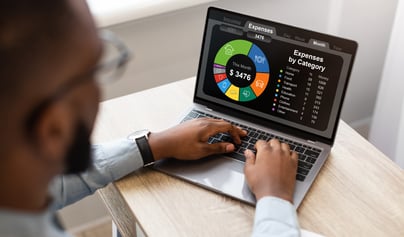 Sometimes, reviewing your bank statements can be a little painful. It’s not always fun to look back at your spending from the past month. But taking a little time to view your statements can help you save money in the short term as well as the long run.
Sometimes, reviewing your bank statements can be a little painful. It’s not always fun to look back at your spending from the past month. But taking a little time to view your statements can help you save money in the short term as well as the long run.
Common Areas of Overspending
For many Americans, overspending occurs in a few common areas. These include buying lunch every day, subscription services, gym memberships, coffee, grocery shopping, and food delivery. Some of these things are great if you actually use them, such as gym memberships and subscriptions. If you don’t use them, however, they could be eating your money. A gym pass, for example, is worth it if you’ve developed the habit of working out regularly. If you find that you only go to the gym once or twice per month, it could be cheaper to go to a community recreation center and pay the entrance fee each time you attend. A quick look at your recent transaction history can remind you of these expenses. This can give you an opportunity to consider which investments are valuable to you or which habits you can work on developing.
Convenience is another factor that contributes to overspending. Take food delivery, for instance. This service is useful when you can’t leave the house. Other times, it’s simply easier to stay home and have a meal come to your doorstep. Even more convenient is when your credit card is already saved to a food-delivery app. But remember: Food delivery can end up costing you substantially more than going to the restaurant yourself. After paying for the meal, you’ll also end up paying fees (for example: service fees, distance fees, or minimum-transaction-amount fees) as well as a tip. While having your food delivered can be a guilty pleasure you enjoy every so often, a quick glance at your bank statement could tell you if it’s developed into an expensive habit instead.
Takeaway
Regularly checking your bank statements can serve as a reminder of where you’re spending money. Use this as an opportunity to assess which expenses are wants, needs, or where you can cut back. The savings can be used to go toward something more worthwhile to you or to place in your savings account.
Check out our last two blogposts to see how checking your statements can help you fight fraud and avoid unwanted fees.



